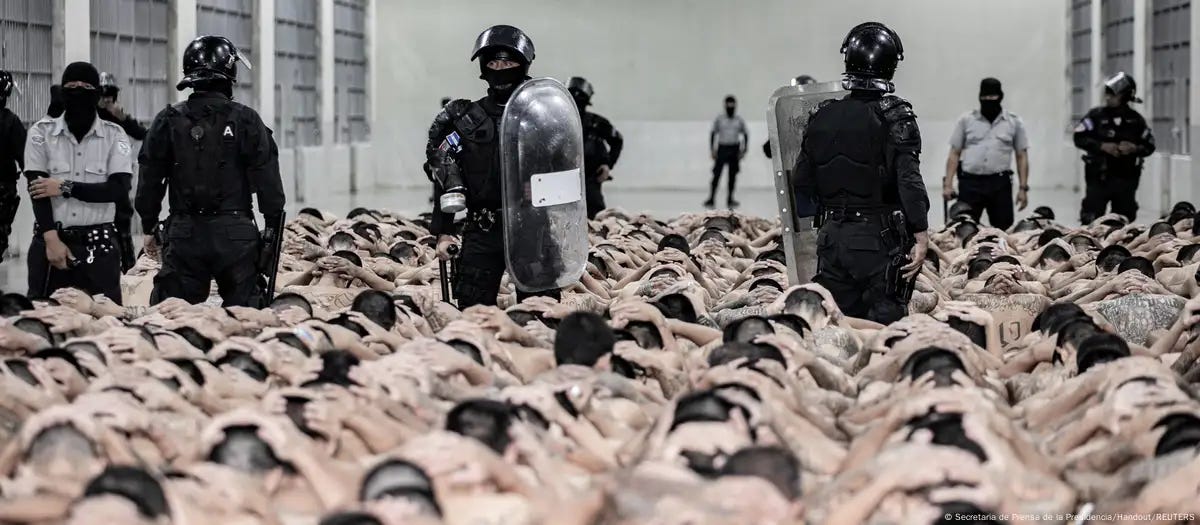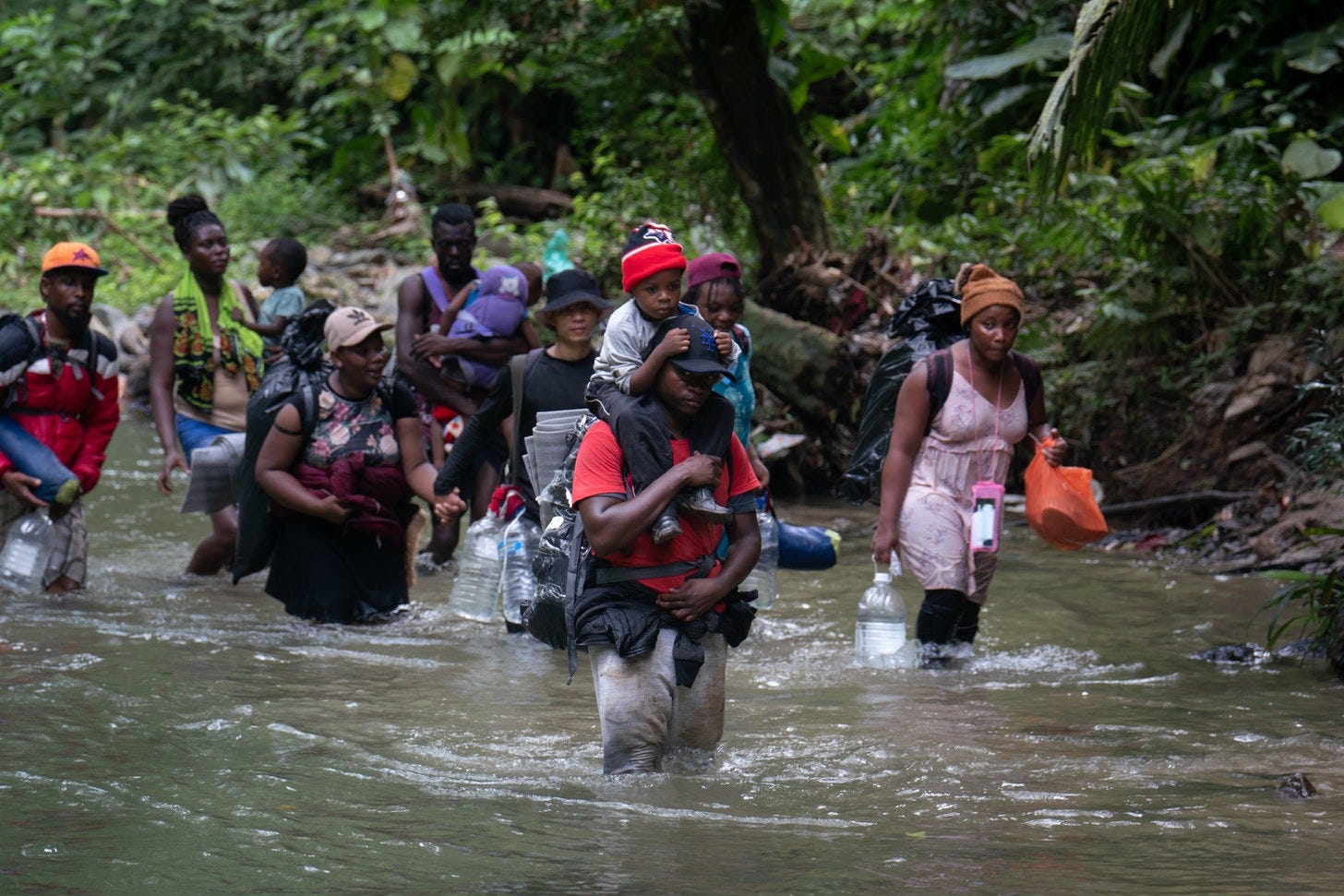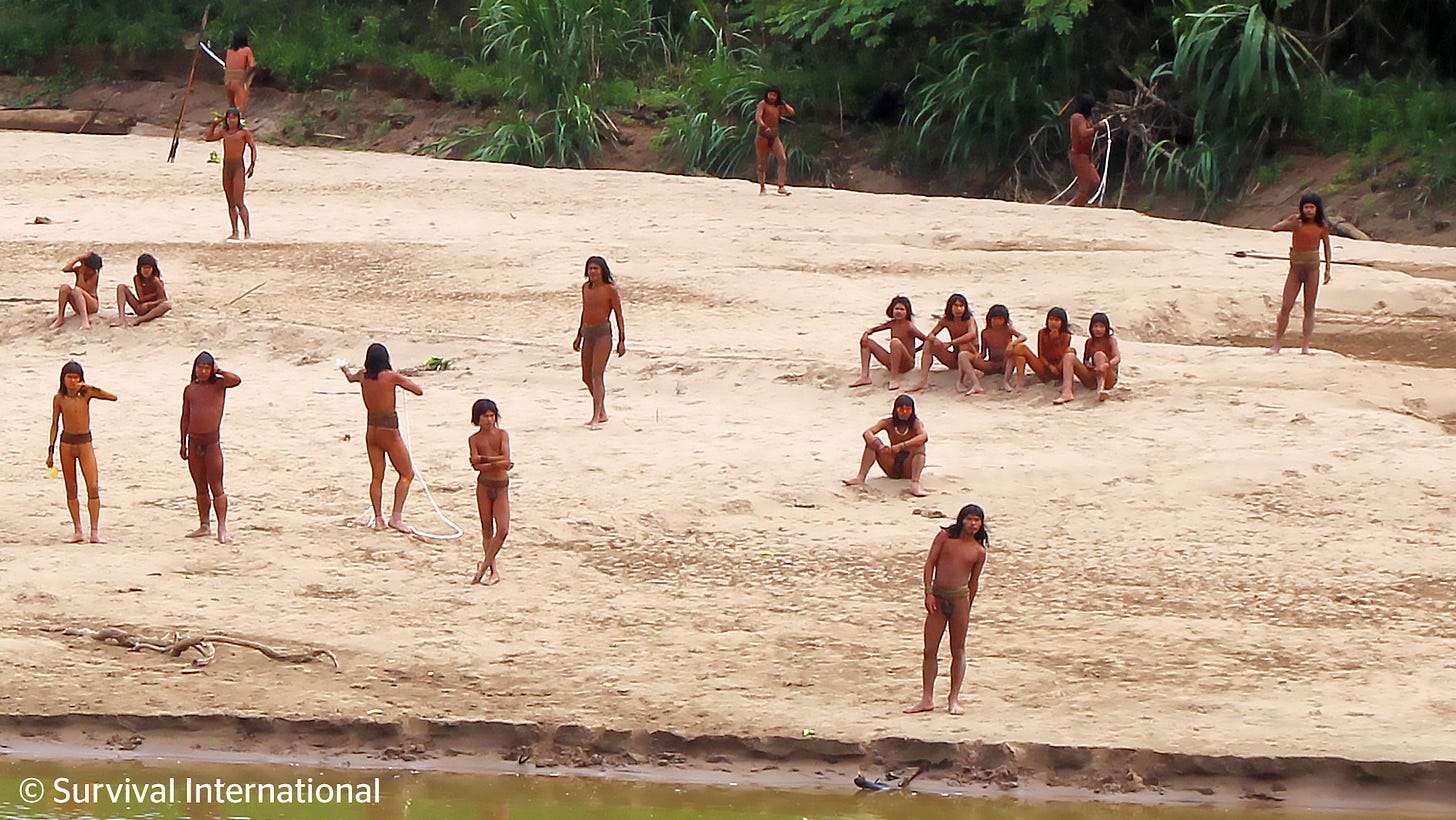U.S. Elections are dominating the news cycle: here are the stories you missed this week in LATAM
The Trump/Bukele breakup, an uncontacted and endangered Indigenous community in Peru, a scandal over racism in Argentina and the latest on the Darien Gap
International headlines this week have been dominated by elections news in the United States. Amidst an assassination attempt against Donald Trump, drama over whether President Joe Biden will stay in the race, and a series of scandals at the Republican National Convention, Latin America went rather ignored in most English-language media.
But fear not! PWS has you covered. Instead of our usual long-form feature article, we thought it might be fun to bring you all the important stories in in Latin America that the big media companies missed.
The Trump/Bukele breakup
And we can start with a falling out between two of the most dominant right-wing strongmen leaders in the Americas. Nayib Bukele, president of El Salvador, has in recent years become a rising star among the “law and order” right— not just in Latin America —and Donald Trump, ex-president and the current frontrunner in U.S. presidential elections in November.
The self-proclaimed “coolest dictator in the world”, spoke at CPAC, in the U.S. in February, and received a hero’s welcome. After an authoritarian crackdown reduced crime in the country — as well as imprisoned over 2% of El Salvador’s population — Bukele won re-election in the country in a landslide despite second presidential terms being prohibited by Constitutional law.
Trump and Bukele enjoyed a good relationship during Trump’s time as president. The Biden administration has continued largely turning a blind eye towards human rights violations, democratic backsliding, and abuses of power by Bukele in exchange for cooperation on migration issues.
Bukele has often supported Trump even after he left the presidency and criticized legal proceedings against the former president in the U.S. as an erosion of democracy. Bukele’s supporters across the region are generally fans of Trump as well.
But during a long and rambling acceptance speech at the RNC, Trump attacked his former ally, falsely claiming that El Salvador, among other countries in the region, is sending their criminals to the U.S. in an effort to get rid of them. There is no evidence this claim is true for any country in Latin America.
The comments sparked confusion, backlash, and even denial among Bukele supporters in Latin America, with some speculating that Trump confused Bukele with Venezuelan President Nicolas Maduro, but that seems belied by Trump’s speech itself. In addition to naming Bukele, he also referred to “a 70% drop in crime”, and “someone I got along great with in my first term”— neither descriptors that could be applied to Maduro.
Bukele responded to the remarks only indirectly, tweeting “Taking the high ground”, and not addressing Trump’s comments or accusations. The episode illustrates a tension, however, between MAGA supporters in Latin America and their North American cousins. As much as elites in Latam may consider themselves “part of the club”, it is clear that U.S. Republicans do not return the sentiment.
In related news, a report by Human Rights Watch this week identified over 3,000 minors who have been detained under Bukele’s “state of exception”, some of which have been subjected to treatment that amounts to torture.
Panama
As we have covered here at PWS before, Panama’s new President, José Raúl Mulino, has promised to close the Darien Gap. The government has already erected razor wire obstacles on some of the main migrant trails— though they are more an inconvenience than a real closure, easily walked around.
As part of reporting for stories on the subject, PWS has spoken with immigrants who have recently crossed the Darien as well as experts on the border regions. The obstacles, as well as promised deportation flights funded by the U.S., are more symbolic than practical barriers. Only a very small percentage of arrivals into Panama are actually being deported.
Nonetheless, the government claimed on Wednesday that the optics are having an effect. Numbers dropped in late July compared to previous months, though other factors may be more responsible than government actions, including seasonal cycles which tend to ebb in the winter and Summer.
Racism at Copa America
Argentina defeated Colombia 1-0 in the championship game of the Copa Americana last Sunday. But footage of aftergame celebrations posted by Enzo Fernández, who also plays for Chelsea, on his Instagram account appeared to show him and his teammates involved in chants that included racist and homophobic slurs about members of the France team. Fernández later apologized, saying the video did not “reflect my beliefs or my character”.
The French Football Association immediately condemned the video, and Fernández will face disciplinary action from the Chelsea football club. FIFA has also launched an investigation.
The video has inspired public debate about racism in Argentina, conversations that have at times become heated. Argentine Vice President Victoria Villarruel, in response to conversations about systemic racism in the country, said that Argentina “never had second-class citizens” and “never imposed our way of life on anyone” two days before the centenary of the Argentine state massacring 500 Indigenous people.
It is not the first time that Villarruel has engaged in historical denialism. She also regularly, and without evidence, claims that the number of dissidents killed during Argentina’s military dictatorship has been exaggerated by historians.
Uncontacted tribe in Peru emerges
Rare photographs of an uncontacted indigenous community, the Mascho Piro, the largest uncontacted tribe in the world, emerged this week in Peru. Roughly 50 Mashco Piro people have appeared in southeastern Peru, in recent days near forests being logged by commercial interests.
In a separate incident, another group, of 17, appeared near the neighboring village of Puerto Nuevo, near another indigenous nation, the Yine community The Yine, who are not uncontacted, speak a language related to Mashco Piro, and have previously reported that the Mashco Piro angrily denounced the presence of loggers on their land.
Several logging companies hold timber concessions inside the territory that belongs to the Mashco Piro people. The nearest is just a few miles from where the Mashco Piro was filmed.
One company, Canales Tahuamanu, that operates inside the Mashco Piro territory has built more than 200 km of roads for its logging trucks to extract timber. It is certified by the FSC (Forest Stewardship Council) for its supposedly sustainable and ethical operations there, despite the Peruvian government acknowledging eight years ago that it is cutting down trees within Mashco Piro territory.
You can view all of the photos and videos here.
Venezuela goes to the polls this Sunday
Venezuela holds elections on Sunday, July 28. The government of Nicolas Maduro, which trails in most polling, has arrested leading opposition members in recent weeks.
In public statements, Maduro has warned of a popular uprising if the right wing removes him from power.
“If they do not want Venezuela to fall into a bloodbath, into a fratricidal civil war,” the ruling party must win the presidential elections on July 28, Maduro told a campaign event in Caracas on Tuesday.
Maduro added that only a victory for his party could preserve peace in the country.
The opposition meanwhile says that the removal of Maduro from power would allow the nearly 8 million people who have fled the country since 2015 to finally return home.
Ship Business
The PWS Good Ship Capybara is still on the seas! For three years now we’ve endured tempests and doldrums, at times running low on supplies, but always living to sail on another day. We’re at 2000 subscribers now, and deeply grateful for all of your support.
Joshua is still staying with friends in Medellin, looking for permanent housing. Still thinking of going to Cauca. Daniela is holding down the capital, Bogota, for the pirate crew, and Amy is back at the helm of the Buenos Aires Herald— captaining through a different sort of storm at the Latin American news desk.
Are things going well? We do believe we’d have to say “yar!”
Spanish word of the Week
Caribear - to Caribe (dominate)
As Bukele and Trump fans tried to come to terms with the tension between their two favorite strongmen, public debate raged. We found ourselves reading a lot of comments from all sides of the conversation. As part of that, we kept running into the word Caribear. To be completely honest, we didn’t recognize the word!
We had to look it up to understand what people meant when they were saying that Trump was Caribeando Bukele. Turns out, it’s Venezuelan slang for “to dominate” someone, “to exercise dominion over” someone, or, “to manipulate and control through cunning”.
We think that’s pretty badass. English doesn’t really have a word for this, but we love that it seems to have evolved from “Caribe”, or the Caribbean.
Watch out for those people from the Caribbean! Apparently, they will dominate you if you let them!
Consider yourself warned, and steer a wide berth, piratas!
Hasta pronto!








Very good , thanks, Joshua.